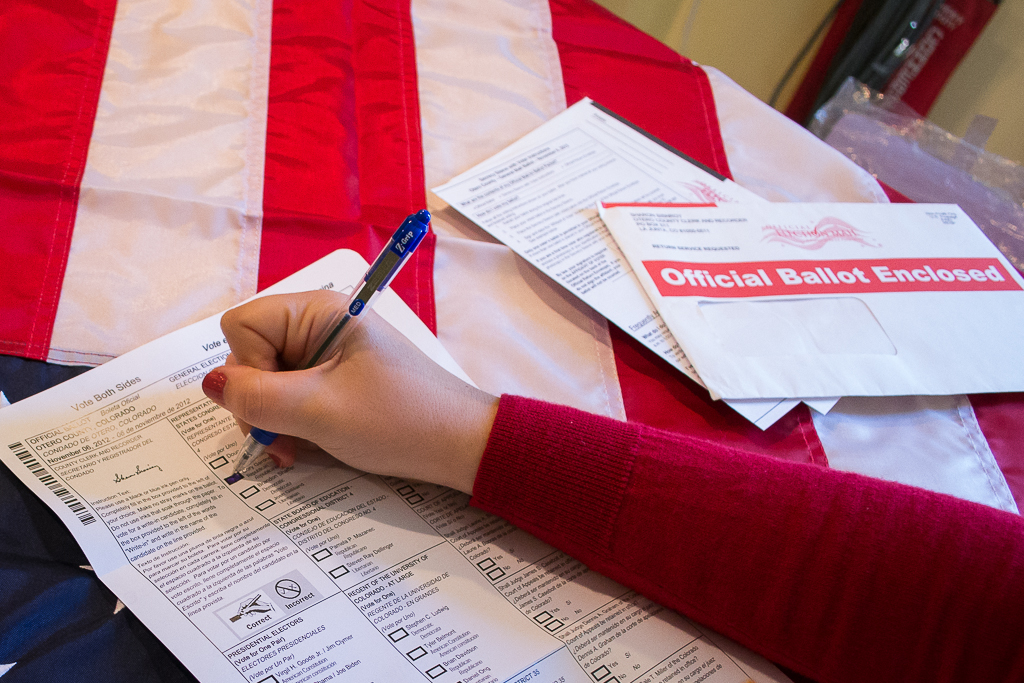
As the 2012 presidential election approaches, Biola students are making decisions about if and how they will vote.
A study by the Center for Information and Research on Civic Learning and Engagement — or CIRCLE — showed that in the 2008 election, only 51 percent of all 18- to 24-year-olds eligible to register to vote voted. This demographic describes the majority of Biola students and, according to history and political science chair Daniel Christensen, is not surprising.
“This generation is disengaged from public life, foreign affairs and local politics,” Christensen said. “Eighteen- to 22-year-olds are focused on themselves … so it’s natural not to be very civic-minded.”
Putting off the polls
Freshman communication disorders major Julie Gann will not participate in this year’s election.
“I just never got around to picking up the paper,” she said.
Gann, a native of nearby Corona, noted that she was aware of absentee voting options and how to register to vote, but will not.
“I don’t have a car on campus to go get [a ballot] and I was just busy,” she said.
In spite of multiple campaigns designed to entice young people to vote — such as the grassroots organization Rock the Vote — many students will not, according to Christensen.
“As for how many [Biola students] will vote … my guess would be 15 percent will vote,” Christensen said. “Being away from the home voting district makes it even harder, although with a little foresight it’s not that hard.”
Some at Biola see that as a missed opportunity to help shape the future of the United States.
“In the same way that we would snatch someone from the burning fire … because it’s the right thing to do, we’ve got to vote because policies are going to be made that affect all [these] things,” said David Talley, a professor in the biblical studies department. “We’ve got to vote first and get the right people in.”
Although Talley maintains that Christians are not biblically mandated to cast their ballots, he does stress the power voting gives people to choose the elected leaders they must obey.
“Democracy is not biblical, per se; it’s what we’re living in,” Talley said. He went on to clarify that the Bible requires Christians to obey their leaders, but that if they are given the chance to decide who that leader is, they should not pass it up.
Considering the ballot biblically
Junior kinesiology major Cara Krieger sees her perceived duty to vote as more than just a civic responsibility, but also as a window for evangelism.
“I think that we as Christians are called to be representatives in this world, and a big way that we as Christians can make an impact is through participating in governmental affairs,” she said.
Krieger is a local hailing from Los Alamitos, but is still choosing to submit her vote via the absentee process. She is not alone: According to a report from CNN, 30.3 percent of voters in 2008 mailed in their votes ahead of time.
“I think I’m gonna do absentee and turn it in just so I can have more time to think about it and really make a wiser choice on the [propositions],” Krieger said.
Christensen said that students should strive to make their own decisions on who and what they vote for, rather than seeking others’ opinions.
“I think that the biggest mistake is taking advice from peers on who to vote for, instead of reading the candidates’ policies,” he said. “Don’t vote like your parents or friends for no reason.”







